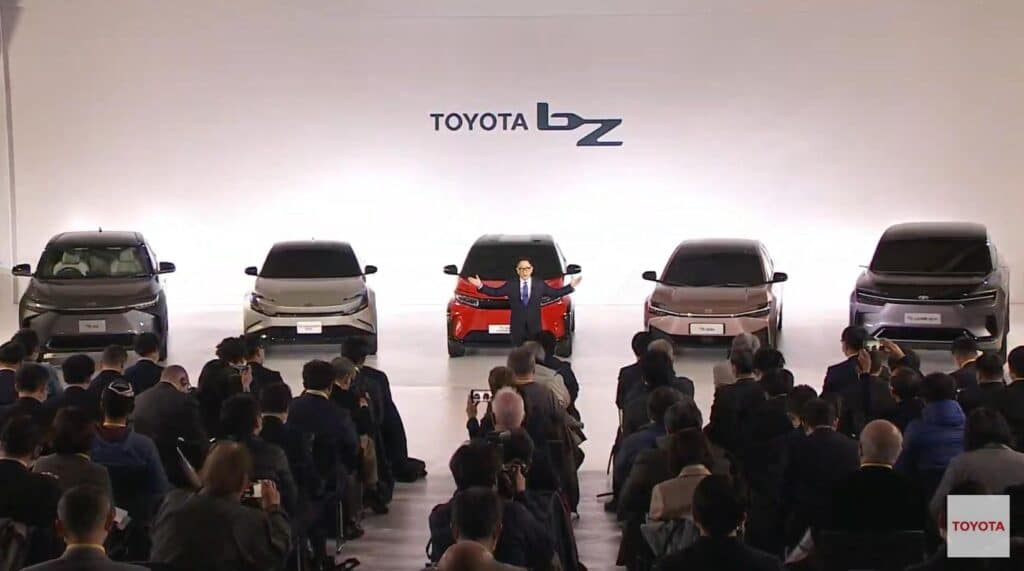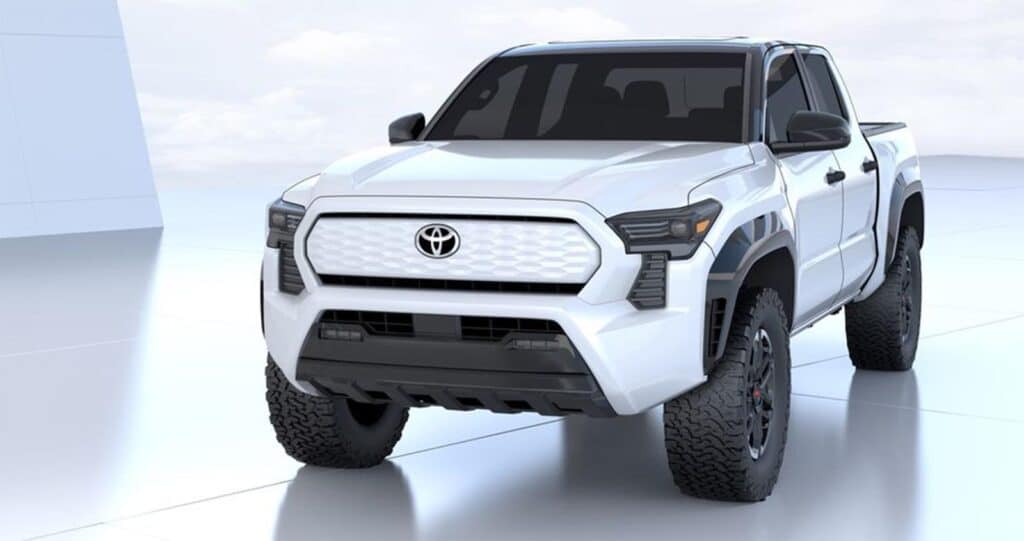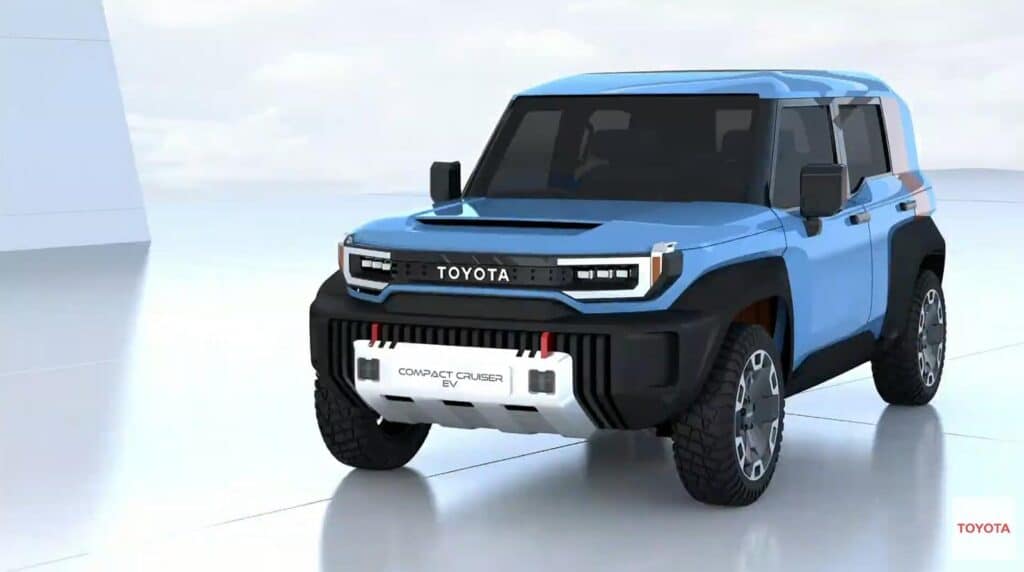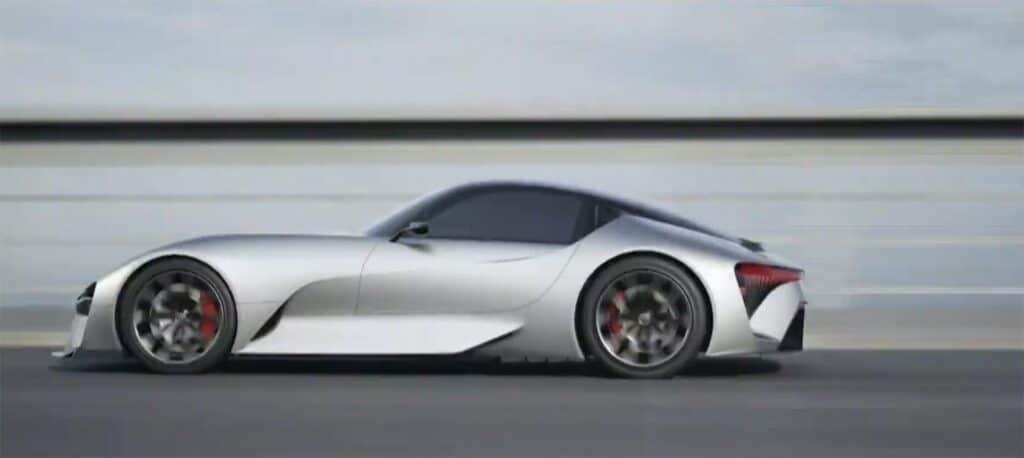Toyota Motor Co. will up its investment in battery-electric vehicles to 4 trillion yen, or $35 billion, CEO Akio Toyoda announced Tuesday, with plans to bring 30 BEVs to market by 2030.

The strategy calls for a broad array of all-electric models, including not only SUVs like the new bZ4X Toyota revealed last month, but sports coupes and a battery pickup, as well. As part of the program, the Lexus brand will go 100% BEV, said Toyoda, the grandson of Toyota’s founder.
The Japanese giant has been slow to embrace BEVs when compared to key rivals such as General Motors and Volkswagen, both of which are on a path to what GM CEO Mary Barra has called “an all-electric future.” Toyota expects all-electric models to account for 3.5 million of its vehicles annually by 2030. That would mean little more than a third of its global sales based on its current volume of around 10 million vehicles.
“It is difficult to make everyone happy with a one-size-fits-all strategy, the CEO said during a 90-minute presentation and question-and-answer session.

Facing challenges
Toyoda pointed to the lack of a readily accessible public charging network in middle America as one of the reasons why the automaker intends to continue offering a mix also including conventional hybrids like the familiar Toyota Prius, plug-in hybrids and hydrogen fuel-cell vehicles such as the new Toyota Mirai. Toyota expects to spend another $35 billion on those technologies.
The plan announced Tuesday nonetheless brings a significant increase in spending on BEVs and the batteries needed to power them up. The carmaker earlier this month revealed it will build a lithium-ion battery plant in North Carolina capable to providing enough cells for up to 1.2 million vehicles. All told, spending on battery development and production will rise from a prior target of 1.5 trillion yen to 2 trillion, or about $17.6 billion.

While Toyota’s commitment to all-electric vehicles remains lower than many competitors, it has ramped up in a series of steps during the last several years. And Toyoda left open the possibility this could happen again. In such a dynamic era, it is “difficult to predict the future,” and will require his company to carefully read changing consumer needs and desires, he stressed.
“In this diversified and unchartered era, it is important to flexibly change the types and quantities of products produced, while keeping an eye on the market trends,” he said during the presentation, according to a simultaneous translation.
Showing off the future
During the session, Toyota rolled out prototypes representing about half of the 30 vehicles it hopes to have in production by 2030. Reflecting one of the most significant global trends reshaping the auto industry, it was heavy on all-electric SUVs.

That includes the new Toyota bZ, or Beyond Zero, sub-brand. The first model to carry that badge will be the bZ4X SUV unveiled at the LA Auto Show. A smaller utility vehicle targeting Europe and Japan was among the vehicles, as was an SUV larger than the bZ4X that likely will come to the U.S.
But there were sedans and sport coupes in the mix, along with what appeared to be an all-electric alternative to the Toyota Tundra pickup.
At least four of the prototypes are targeted at Lexus. That includes the RZ concept vehicle that was recently teased by the luxury brand. It appears to be roughly the same size as the long-popular Lexus RX.
The brand will undergo the most radical change as part of Toyota’s electrification strategy. Lexus will shift rapidly to BEVs and go entirely electric in North America, China and Europe by the end of this decade. It will reach that point globally by 2035, officials said. That is in line with what key rivals such as Cadillac, Jaguar and Audi are planning, with Mercedes-Benz and BMW, among others, also moving quickly in that direction.







